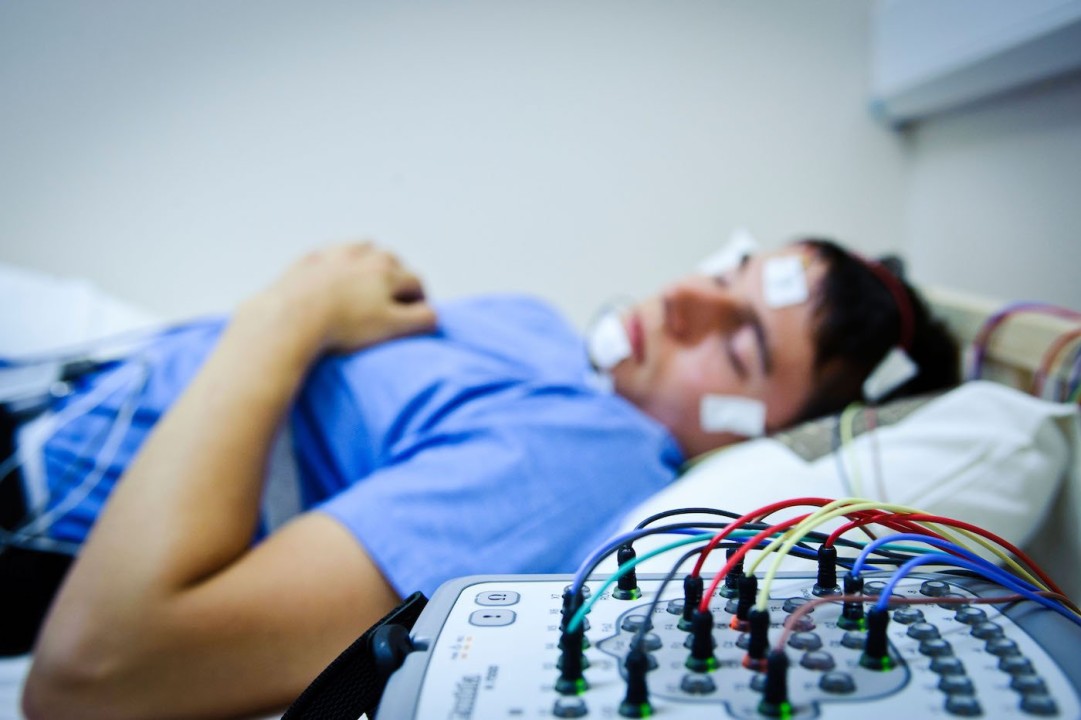Exploring Polysomnography Tests in Delhi: Your Path to Better Sleep
Are you looking for Polysomnography Tests in Delhi? It has commonly known as a sleep study, is a diagnostic tool that can provide invaluable insights into your sleep patterns and identify underlying sleep disorders. If you reside in Delhi and are seeking a reliable polysomnography testing center, you’ve come to the right place and it guides you through the process of finding the best Polysomnography test in Delhi and understanding what it entails.
Understanding Polysomnography
Polysomnography test in Delhi is a comprehensive test that tracks your sleep-related activities throughout the night. Which involves installing various sensors attached to your body, such as through electrodes in your scalp, chest, and legs, these sensors measure brain waves. Heart rate breathing pattern oxygen level and muscle activity Analyzing this data helps health professionals diagnose sleep disorders, such as:

- Obstructive sleep apnea: A condition where your airway becomes blocked during sleep, causing you to snore loudly and gasp for air.
- Narcolepsy: A neurological disorder that causes excessive daytime sleepiness.
- Sleepwalking: A sleep disorder where you get up and walk around while still mostly asleep.
- Restless legs syndrome: A neurological disorder that causes an irresistible urge to move your legs.
Finding a Polysomnography Testing Center in Delhi
Choosing the right Polysomnography test in Delhi center is crucial for accurate diagnosis and treatment. Here are some factors to consider when searching for a reputable facility in Delhi:
- Accreditation: Look for centers that are accredited by recognized organizations such as the American Academy of Sleep Medicine (AASM) and it ensures that the facility meets high standards of quality and patient care.
- Experience: Choose a center with a team of experienced sleep specialists who have a proven track record in diagnosing and treating sleep disorders.
- Location and Convenience: Consider testing center location and accessibility. Amenities that are convenient for you. Especially if you want to travel long distances.
- Insurance Coverage: Check with your insurance provider to determine if they cover polysomnography tests, and it helps you avoid unexpected costs.
- Online Reviews: Read online reviews from previous patients to get a sense of the center’s reputation and the quality of its services.
The Polysomnography Procedure: A Detailed Guide
Polysomnography test in Delhi, often referred to as a sleep study, is a comprehensive test that monitors various aspects of your sleep while you rest. With attaching a series of sensors to your body to measure your brain waves, heart rate, breathing patterns, oxygen levels, and muscle activity.
Preparation for the Polysomnography Test
Before the test, you’ll be asked to follow certain guidelines to ensure accurate results:
- Avoid Stimulants: Minimize or avoid caffeine, nicotine, and alcohol for several days leading up to the test, as these substances can interfere with sleep patterns.
- Dietary Restrictions: You may be advised to avoid heavy meals before bedtime to prevent digestive discomfort that could disrupt sleep.
- Medication Review: Inform your sleep specialist about any medications you’re taking, as some may need to be adjusted or temporarily discontinued.
- Comfortable Attire: Wear loose-fitting, comfortable clothing that allows for easy access to your body for sensor placement.
The Polysomnography Procedure
The Polysomnography test in Delhi typically takes place in a sleep lab, which is designed to mimic a comfortable bedroom environment. It involves the following steps:
- Sensor Placement: A technician will attach various sensors to your body using adhesive. It includes:
- Electrodes: Placed on your scalp to measure brain waves (electroencephalogram or EEG).
- Chest electrodes: To monitor heart rate (electrocardiogram or ECG).
- Nasal cannula or mouth mask: To measure breathing patterns and oxygen levels.
- Leg electrodes: To detect muscle movements.
- Sleep Monitoring: Once the sensors are in place, you’ll be asked to lie down and try to fall asleep. The technician will monitor your sleep patterns throughout the night.
- Data Collection: The sensors will continuously record your sleep-related data, which will be analyzed by a sleep specialist.
The Sleep Lab Environment
Sleep labs are designed to create a conducive environment for sleep. They are typically quiet, dark, and temperature-controlled. You may be provided with noise-canceling headphones or a white noise machine to help you relax.
Duration of the Test
A polysomnography test usually lasts 7-8 hours, but it may be extended if you have difficulty falling asleep or staying asleep.
Post-Test Follow-up
After the test, the technician will remove the sensor and you can go home. The experts analyze recorded data to identify sleep disorders and recommend appropriate treatment options.
To handle the polysomnography procedure, you should be prepared enough so that you can make the test a success as well as understand more about your sleep patterns.
After the Polysomnography Test
When multiple sleep science tests are completed A sleep expert will analyze the data and create a detailed report. The sleep disorder and recommend appropriate treatment options. You may need additional tests or start treatment right away. It depends on the research results.
Conclusion
Polysomnography as a means for diagnosis and therapy of sleeping issues is something to behold. In case there are doubts about your conditions, then it is prudent to go for a polysomnography test in Delhi. The information you require on how to locate a reliable testing facility, as well as the initial steps that would enhance both your quality of sleep and general lifestyle.